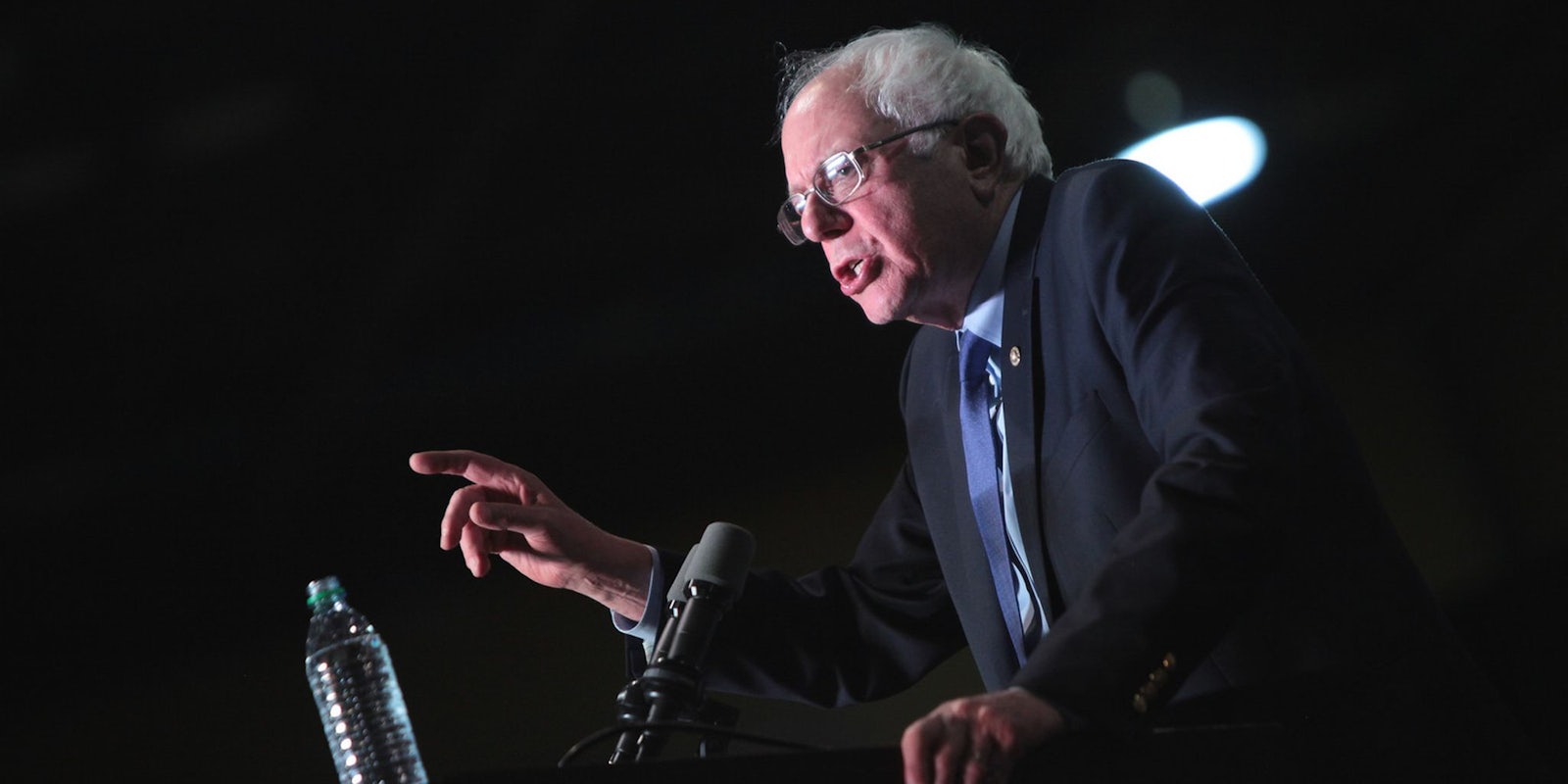In the second major upset of the 2016 Democratic race, Sen. Bernie Sanders decisively beat challenger Hillary Clinton in Indiana’s Democratic presidential primary on Tuesday night.
Clinton led Sanders by an average of nearly seven points heading into Tuesday’s contest, according to Real Clear Politics. But Sanders supporters had hopes of a surprise triumph on par with Sanders’s win in Michigan on March 8.
Despite the victory, Sanders remains far behind Clinton, whose delegate lead is nearly three times the largest lead then-senator Barack Obama ever held over Clinton in 2008.
Sanders will take roughly half of Indiana’s 83 delegates, which are awarded proportionally based on each candidate’s percentage of the vote, per Democratic Party rules. At the time of publication, Sanders led Clinton 53.2 percent to 46.8 percent, with 68 percent reporting.
With Clinton and Sanders on track to roughly split Indiana’s delegates, Clinton will have approximately 1,687 pledged delegates to Sanders’s 1,359 pledged delegates. Including superdelegates—party officials who may switch their allegiance—Clinton will have around 2,207 total delegates, giving her nearly 93 percent of the 2,383 delegates needed to secure the Democratic nomination.
Sanders must win 82.5 percent of all available delegates, including the 83 from Indiana, to win the party’s nomination, effectively pushing the nomination out of reach. It is technically possible for Sanders to woo Clinton’s superdelegates over to his side, though that is unlikely if he fails to secure the majority of pledged delegates.
Regardless of the delegate gap, Sanders has vowed to continue his campaign through to the Democratic National Convention, which kicks off July 25. According to a recent NBC News-SurveyMonkey survey, 57 percent of Democrats want Sanders to remain in the race.
The largest shakeup of the night came on the Republican side. Following a win by Donald Trump in Indiana, Texas Sen. Ted Cruz dropped out of the race, ensuring that the New York billionaire will be the Republican presidential nominee.
The Democratic presidential race continues on Saturday, with the Guam Democratic caucus, followed by the West Virginia primary on May 10.


